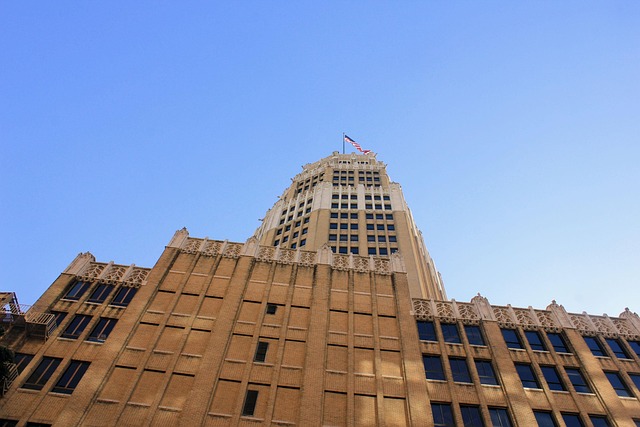The Federal Debt Collection Protection Act (FDCPA) of 1977 protects consumers from abusive debt collection practices, including harassing behavior and repeated calls. In San Antonio, many debt collection agencies violate FDCPA standards by misrepresenting themselves, using false language, ignoring "Do Not Call" requests, and providing incorrect debt information. Debtors have rights under the FDCPA to request validation of their debts and stop contact. Violations result in legal action with damages and penalties. In Los Angeles, Do Not Call laws have transformed law firm operations, emphasizing targeted communication channels to maintain positive client relationships and avoid FDCPA violations. Strict adherence to FDCPA guidelines is crucial for debt collectors and law firms to avoid severe legal consequences and reputational damage, especially in areas like San Antonio. Understanding one's rights under the FDCPA is vital for consumers facing debt collection, enabling them to assert their "Do Not Call" rights and resolve financial obligations without harassment from LA-based do not call law firms.
“Unfair debt collection practices can significantly impact consumers, leading many in San Antonio to seek legal protection. The Federal Debt Collection Protection Act (FDCPA) was designed to curb abusive tactics by debt collectors, ensuring fairness and transparency. This article delves into common FDCPA violations specific to San Antonio, highlighting the importance of ‘Do Not Call’ laws for law firms. We explore legal consequences for non-compliance and empower individuals with knowledge on protecting their rights against unethical collection methods, especially from LA-based do not call law firms operating in Texas.”
Understanding FDCPA: Federal Debt Collection Protection Act Overview

The Federal Debt Collection Protection Act (FDCPA) is a pivotal piece of legislation designed to safeguard consumers from abusive, unfair, and deceptive practices by debt collectors. Enacted in 1977, this federal law establishes rules for how debt collection agencies can interact with debtors, ensuring their rights are protected throughout the process. Understanding the FDCPA is crucial for both consumers and debt collectors alike, as it outlines specific do’s and don’ts to maintain a fair and transparent debt recovery environment.
One of its key provisions prohibits debt collectors from engaging in harassing or abusive behavior, including repeated calls to consumers who have requested that they stop contacting them (a “Do Not Call” request). Additionally, the FDCPA restricts the time of day and manner in which collectors can communicate, ensuring debtors’ peace of mind. By adhering to these guidelines, debt collection agencies can avoid costly legal repercussions and maintain their reputation while effectively managing outstanding debts.
Common FDCPA Violations in San Antonio, Texas

In San Antonio, Texas, like many other cities across the country, certain collection practices often fall short of Federal Debt Collection Practices Act (FDCPA) standards. Common violations include failing to identify themselves as debt collectors during initial contact, using false or misleading language to threaten or intimidate debtors, and making repeated phone calls with the intent to harass rather than collect a debt, known as “do not call” laws. Many instances also involve incorrect or misleading information provided about the amount owed or the consequences of non-payment.
Debtors in San Antonio have rights under the FDCPA, including the right to request validation of their debt and to stop further contact from collection agencies through written requests. Violations can lead to legal action against the offending parties, who may be liable for actual damages, statutory penalties, and attorney fees. It’s crucial for both debtors and creditors to understand these rights and responsibilities under the FDCPA to ensure fair and lawful debt collection practices.
Do Not Call Laws and Their Impact on Law Firm Practices

In recent years, consumer protection laws have significantly shaped the way law firms operate, particularly in terms of communication with potential clients. One such crucial regulation is the Do Not Call Laws, which directly impact how LA-based law firms approach their marketing and outreach strategies. These laws were designed to curb unsolicited phone calls and protect consumers from intrusive sales tactics. For law firms, this means adhering to strict guidelines when contacting prospective clients to avoid FDCPA violations in San Antonio or other areas.
Law firms must respect consumer choices regarding phone calls by ensuring they obtain explicit consent before initiating contact. This has led to a shift in traditional marketing practices, as many firms now rely on targeted and permitted communication channels. By complying with these regulations, LA-based legal professionals can foster better client relationships and maintain a positive reputation while avoiding potential legal consequences associated with FDCPA violations.
Legal Consequences of Breaking FDCPA Rules

Breaking Federal Debt Collection Protection Act (FDCPA) rules can have severe legal consequences for debt collectors and law firms in San Antonio. The FDCPA is designed to protect consumers from abusive, unfair, or deceptive practices during debt collection. When these rules are violated, individuals can face significant penalties, including substantial monetary fines. If a debt collector or law firm is found guilty of making harassing phone calls, using false or misleading statements, or failing to verify debts, they may be liable for damages and attorney’s fees.
In addition to financial repercussions, FDCPA violations can lead to reputational damage for the offending party. Consumers who experience these unfair practices are often left feeling frustrated and violated, which can result in negative word-of-mouth and public backlash. As such, it’s crucial for debt collectors and law firms to adhere strictly to the guidelines set forth by the FDCPA to avoid legal troubles and maintain their professional integrity.
Protecting Your Rights Against Unfair Debt Collection Practices

In the face of mounting debt, it’s crucial to understand your rights against unfair debt collection practices, especially in San Antonio where FDCPA (Fair Debt Collection Practices Act) violations can occur. The FDCPA was established to protect consumers from aggressive and harassing collection tactics by debt collectors. It sets strict guidelines for how these companies must conduct themselves when attempting to collect a debt from an individual or household.
One of the key provisions is the “Do Not Call” rule, which allows you to request that debt collectors refrain from contacting you by phone. This is particularly relevant for those who experience incessant calls from law firms seeking payment, even after requesting cessation. By asserting your rights under the FDCPA, you can protect yourself from these unwelcome and potentially harassing actions, ensuring a more peaceful resolution to your financial situation.






